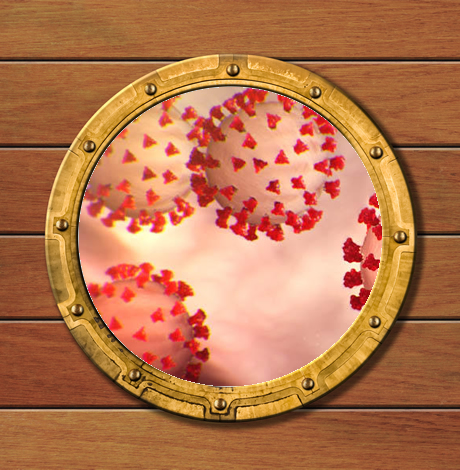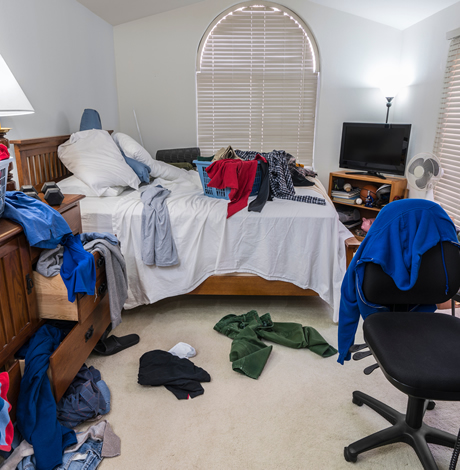Advice
In or out?
Job is great except for anti-gay climate


Is there a way to be closeted at work and still live the rest of my life as a happy, proud, well-adjusted gay man?
Dear Michael,
I feel like I’m living a lie because I’m not out at work. I’m afraid that if I come out, it will negatively impact my career.
I work for a company with a conservative corporate culture that is also somewhat “frat house.” I don’t have any openly gay colleagues and I don’t even know if there are any other people who are closeted. I sometimes hear colleagues make disparaging remarks about gay people disguised as humor.
Why do I stay? I actually love my work and jobs in my specialization aren’t easy to find. They also tend to be with companies with corporate cultures similar to my current workplace.
If people suspected, I’m worried that I’d be ostracized or miss out on a promotion, so I play the game of saying I’m straight and even sometimes talk about women I’m supposedly dating. I don’t feel good about this.
I’m embarrassed to talk to my friends about how difficult this is because I’m sure they’ll judge me, so I actually feel distant from everyone I’m close to.
Also, I feel like I have to monitor myself all the time, worrying about who might see me when I’m out with my gay friends and always watching what I say at work.
I almost don’t like who I am, but I don’t think I have a choice if I want to be successful in the career I love.
Is there a way to be closeted at work and still live the rest of my life as a happy, proud, well-adjusted gay man?
Michael replies:
You can try, but that sounds like a tall order. I understand that being openly gay at the office might damage your career, but living your work life shrouded in a lie is damaging your mental health and self-esteem.
Can you really feel proud of who you are while you’re keeping silent when people tell anti-gay jokes? Can you be a fully integrated human being when you are vigilant about portraying yourself to your colleagues as someone you’re not? What limitations are you putting on your ability to date, partner or have a family if you need to hide your personal life at work? And is it really tenable to keep these two worlds apart indefinitely?
On a practical level, are there any protections in place for you as a gay employee, either through your company or a state/local government? If so, you would have some recourse if you decided to stop living a secret life, though things could still get ugly.
Of course, the most powerful weapon to challenge and reduce homonegativity is to come out. That doesn’t mean you have to make a move you don’t want to make or endanger the career you want. But you should decide if the price you say you’re paying for that career is really worth it.
Could it be that your fears are overblown? Yes, it’s an awful fact that for LGBT people, living honestly can still result in hostility, job loss, threats, violence and even death. But given that you work at a professional level with educated colleagues in a metropolitan area, your co-workers may be more educable and open to tolerance than you think and perhaps you would not get the negative reaction you expect.
Might you have other reasons for being closeted at work?
What are your own long-standing feelings about being gay? How long have you been out to yourself and to friends? Are you out to your family? Do you have any religious beliefs that make it difficult for you to fully accept yourself? Is it possible that you are uncomfortable coming out at work due to your own negative view of yourself as a gay man?
Another possibility: You may be paralyzed by anxiety about making a big move with many unknown consequences. Some questions to help you test this hypothesis: How have you coped with change in the past? How comfortable are you with confrontation? How do you handle others’ disapproval? If you have had difficulties in these areas, you’re facing a great opportunity to get better at taking important steps despite being really anxious, and despite not knowing in advance how things will turn out.
No matter what, your current life sounds pretty dismal and also lonely. I suggest you find a LGBT-affirmative therapist to help you sort out the reasons you are staying in an unhappy situation and assist you in figuring out how you might change your life in ways that may be scary, but may also be liberating.
Michael Radkowsky, Psy.D, licensed psychologist, specializes in LGBT individual therapy and couples counseling in Washington. He can be found online at personalgrowthzone.com. All identifying information has been changed for reasons of confidentiality. Have a question? Send it to [email protected].

Hi Michael,
When I came to D.C. for college and came out, I was idealistic about finding true love. I made gay friends at school and watched them hooking up all the time.
It seemed like the opposite of what I wanted. I dreamed of meeting “Prince Charming” and living happily ever after. I thought I would put off sex until I met my special guy.
This went on for a while until I got too horny and impatient to keep putting off sex. The boyfriend wasn’t materializing so I went online and hooked up. Actually it was a lot of fun.
Soon I was hooking up as much as any of my friends were. I kept hoping I’d still find my prince. But over time most of my energy shifted to finding guys to have sex with.
Now I’m 34. I’ve been at this a long time and I realized the other day that I don’t like my life.
I haven’t been on a real date in years but I’m hooking up multiple times a week. I’ve been with almost everyone I see on the apps whom I find attractive (where the feeling was mutual). And yes, I’ve been with a lot whom I didn’t find attractive because I was horny.
I look at myself and I think, yuk. I don’t like whom I’ve become.
I feel like I am addicted to hooking up. I just keep craving something. The release but mostly the attention, that the other person finds me hot. After I come, I feel like the whole thing was pointless, and a little disgusted with myself. Advice?
Michael replies:
You’re using hookups not just for sex, but as a way to feel good about yourself by getting positive attention from others.
But other-validation is like junk food, a sugary snack that staves off hunger for a few minutes and never really fills you up. All those guys you hook up with? The attention feels great, but as you wrote, that feeling lasts until your orgasm. And then you’re back to chasing it.
As with junk food, the other-validation you get when you hook up is a lot of empty calories. Having someone you don’t even know agree to have sex with you says nothing meaningful about your worth or even your attractiveness.
Yet another problem: If you believe that you need other-validation, you will do all sorts of self-damaging behaviors to get it—such as hookups that leave you feeling empty and disgusted. I’ve seen many people lose their self-respect in the service of getting other people’s positive attention through behaviors that violate their own integrity. Doing things that make you feel bad about yourself in an attempt to feel good about yourself is ironic, and sad.
The bottom line is that other people can’t “make” you feel good about yourself. They might give you a small temporary boost, but your self-esteem actually has to come from you. That’s why it’s called self-esteem. Once you are past a certain age, if you don’t believe that you have value, no one else can get you there. You have to validate yourself.
Let’s go big-picture for a moment: It is our parents’ job to teach us that we have value when we are little, and when that doesn’t happen, we often struggle with self-esteem throughout our lives, unless we can find a path to develop our own belief in our worth. In the meantime, we may chase other-validation in a futile attempt to fill ourselves up.
Other experiences we go through—for example, growing up gay in a hostile environment—can also do a number on how we see ourselves, and leave us grasping for affirmation from others. It takes work to get through and get past the impact of these experiences.
So how do you get better at giving yourself the validation you are seeking? There’s a great saying from the 12-step programs: If you want to have self-esteem, behave in esteemable ways.
What would it mean for you to behave in a way that you respect? Your letter provides one answer that is true for you: Stop engaging in sexual encounters that leave you disliking yourself.
Far easier said than done, right? But that doesn’t mean it’s impossible. Having gotten clarity that you don’t like the life you’ve constructed for yourself, now you actually can do something about it. Keep in mind, though, that you will face some challenges if you stop hooking up.
First: You may find it isolating and scary to stop doing something that all or most of your friends are doing. You will have to reassure yourself that you’re doing what’s right for you; that you are taking good care of yourself by choosing to avoid behaviors that leave you feeling bad; and that it’s OK to be different from “everyone else.” In other words, you are going to have to get much better at self-validation.
If you have some friends who don’t spend a lot of their time hooking up, they may be good supports for you. Some guys find camaraderie from attending a 12-step program like Sexual Compulsives Anonymous (SCA).
Second: People often use hookups (and sex) not just for sexual gratification, but to soothe anxiety, stress, depression, and other uncomfortable feelings. If you stop hooking up, you will likely need some other ways to keep yourself calm and to steady your mood. Exercise and meditation are two obvious means.
You’d be wise to figure out new ways to fill your time that give you a sense of meaning and connection. I can’t tell you what those might be; only you can figure out what is right for you. They might include developing or deepening warm friendships, taking good care of yourself, finding a new activity that interests you — the list can go on and on.
If you still want to find your prince, this is the way to go about it. The cliché is true: You can’t expect anyone to like you unless you like yourself. If you build a life rich in fulfilling pursuits that help you to feel good about who you are and the life you are leading, you will be transforming yourself into relationship material.
Keep in mind, though, that letting yourself get close to someone through a heart connection would mean having to confront all sorts of uncomfortable emotions, including feeling vulnerable, that you have avoided by limiting yourself to crotch attachments.
That said, working to become a more solid person would help you develop the strength to tolerate the ongoing challenges of a close relationship.
Michael Radkowsky, Psy.D. is a licensed psychologist who works with couples and individuals in D.C. He can be found online at michaelradkowsky.com. All identifying information has been changed for reasons of confidentiality. Have a question? Send it to [email protected].

Hi Michael,
I’m in a relationship I think I don’t want to be in.
Ed is very sweet and that’s part of the problem. He is always solicitous of me, caring, kind, agreeable. I don’t want to hurt his feelings, which I certainly would do if I dump him.
We’ve gotten into what is now a serious relationship because of him, not me. He kept asking me out on one date after another, and I kept saying yes. He proposed being exclusive, and I said yes.
I was lonely, Ed’s cute and a nice guy, and it felt good to be cared about.
Ed is great at planning a fun life. Dinners, vacations, socializing. My life is way more exciting than it used to be. Ed takes the initiative on everything and he’s very good at it.
But I feel smothered, like I don’t have a say in how I live and what I do. We spend all our time together. And my friends are now “our” friends because he always joins me when I get together with them.
I can’t talk about this with him because I don’t think he can handle it. If he sees the least sign of me being upset, he says, “What’s wrong? Are you mad at me?” with this vulnerable tone in his voice. He’s told me he’s afraid of losing me when I’ve shown any unhappiness.
I’m no longer attracted to him. I don’t know why, he’s as cute as ever.
Sometimes I wonder what’s wrong with me. I have a good-looking, caring boyfriend. So many guys want this. I should be happy. But I’m not.
On the other hand, I’m afraid that if I break up with Ed I will be lonely all over again and maybe never find such a caring person.
Any guidance you have would be appreciated in how to think about this and sort it out.
Michael replies:
This relationship is giving you all sorts of opportunities to become a more solid person.
First point to consider: If you can’t set boundaries, you will spend your life twisting yourself into a pretzel to accommodate others. That’s what is happening now with Ed.
When we are struggling to succeed at an important life skill, as you are here, it’s helpful to think how our personal history may be contributing to our being stuck.
Some possibilities for you to consider: What example did your parents model? Perhaps they had trouble setting boundaries in their relationships, so you didn’t learn how to do so. Or perhaps when you were growing up, you didn’t have much say about what you could or couldn’t do, so you didn’t learn you could speak up about what is important to you.
I’m painting with a broad brush here, just to inspire your own thinking. While our lives aren’t rigidly determined by our pasts, the ways that we learned to relate as we grew up do have a powerful influence on how we live in the present. Having some sense of what has shaped our operating system can help us loosen up and try new ways of behaving.
Second (and related) point: You cannot go through life without ever disappointing anyone or you will (as noted above) start to resemble a pretzel. Yes, you’ll likely upset Ed when you tell him that you’re unhappy in the relationship. But if Ed is going to address his clingy and needy behavior, he needs to hear this.
At their best, relationships challenge us to grow. This relationship is pushing you to tolerate disappointing someone you care about, in the service of saying what you need to say. And guess what? Your letting Ed know where you stand will challenge him to work on his own relational wobbliness. Very cool.
Third point: Why are you not stepping forward with your own ideas about what you want to do and how you want to live? You are letting Ed do all the work. What is up with that?
One obvious explanation: Your difficulty setting a boundary is stopping you from asserting what you want. In other words, your inability to say “no” is leading you to feel stifled in this relationship. Good news: you have the power to change this.
Another possibility: Maybe you don’t actually have much in the way of interests or ideas for what you would like to do, and Ed is merely filling the void so that the two of you have some kind of life together.
If so, I encourage you to start thinking about what is meaningful to you. Developing a self—figuring out what is important to you, what you care about—is one of the great tasks and great joys of being alive. If you just keep doing what others around you want—boyfriends, friends, family—you may keep feeling resentful and will squander your life.
I don’t know if you would actually enjoy being with Ed if you do the work to become a solid person who speaks up about what is important and brings his own agenda to the relationship. While it’s your decision to do so or not, I urge you not to decide based on fear of stepping outside your comfort zone.
And please consider that this work would help you in any future relationship, if you end things with Ed.
One more point: It’s no surprise that you’ve lost interest in having sex with Ed. Being enmeshed with someone as tightly as you describe your fusion with Ed is a desire-killer. Perhaps this would change if you give yourself some room to breathe.
Michael Radkowsky, Psy.D. is a licensed psychologist who works with couples and individuals in D.C. He can be found online at michaelradkowsky.com. All identifying information has been changed for reasons of confidentiality. Have a question? Send it to [email protected].
Advice
Navigating these uncertain times
You have no power over others, but you have a lot of power over yourself

For Valentine’s Day, I was planning to write a column about shifts we can make in our attitudes and behaviors to strengthen our love relationships and deepen our connection with our partners.
Then, over the past few weeks, as I’ve been listening to many of my clients express their concerns about the state of our country and our world, I realized that much of what is required to have a great relationship can also help us get through the difficult times we live in.
So here are some principles that I hope will help you to navigate both the challenges of being in a close relationship and the challenges of uncertain times.
These principles overlap because they are all components of an approach to living that focuses on developing and maintaining agency over your life, and working to strengthen your resilience. The more solid you are, the better you can get through the hard stuff.
Strive to behave with integrity, in a way that you respect. You are likely to feel a lot better about yourself if you do what you believe is right, rather than betraying your values out of fear or to please others. The playwright Lillian Hellman, pressed to appear before the House Committee on Un-American Activities in 1952 and “name names,” said it well: “I cannot and will not cut my conscience to suit this year’s fashions.” (Of course, only you can decide how to balance possible consequences with the importance of honoring your principles.)
Stand up for what you believe in. Being quiet out of fear or concern for what others will think leaves us feeling like helpless victims. And you cannot have an intimate relationship when you don’t let your partner know important parts of who you are.
Strive to be non-reactive. Do your best to not let others (or circumstances) press your buttons so that you lash out, rather than responding thoughtfully and with deliberation, based on your values.
Strive to always soothe your anxiety. The philosopher Viktor Frankl wrote: “Between stimulus and response there is a space. In that space is our power to choose our response. In our response lies our growth and our freedom.” When someone or something is starting to make us crazy, the best first move we can make is to quiet ourselves. Doing so allows us to think how to best respond.
There’s a great saying from Twelve Step programs: “If you want to have self-esteem, behave in esteemable ways.” You are more likely to do so when you first calm yourself, rather than exploding with anxiety or rage.
Strive to tolerate discomfort: Sometimes we can’t do much about what is making us uncomfortable or causing us distress. Our partner may not change in ways we would like; our job situation may be rough; we may face hostility in the outside world. Identifying how we can deal with challenges and difficult circumstances in a way that helps us become stronger and more resilient can often help us to weather them a bit more easily.
Strive to tolerate uncertainty: There really are no guarantees about anything important in life. That’s the way it goes. We can’t know how things will turn out —neither our relationships nor our lives nor the fate of humanity. So if we are to construct a meaningful life, we have no choice other than to keep putting one foot in front of the other, doing our best to respond thoughtfully and to have an impact when and where we can, without knowing the outcome.
Strive to stay anchored in reality, not lost in feelings. When we let our feelings run the show, it’s easy to get spun up and reactive. While our feelings are a source of information, they are not reality. All sorts of things—our pasts, the distortions of social media, what people around us are doing and saying—can contribute to how we feel about a situation.
Yes, it’s always a good idea to be aware of our feelings. But before acting on them, calm yourself, get some clarity about why you may be feeling what you’re feeling, and think about how reality lines up (or doesn’t line up) with what you’re feeling. In other words, aim to keep the big picture in mind.
Remember that you cannot change others, but you may at times be able to influence them. For example, when I first became vegetarian, I wanted to push my friends to adopt a vegetarian diet by “enlightening” them about the misery of factory farms and the environmental cost of raising animals for food. I soon realized that lectures and judgment are not a great way to change minds. Serving delicious vegetarian food for a dinner is more helpful. So think about how you can reach out to someone or to others with different views, in a way that they are more likely to hear you.
Obviously, there are limits to this approach. There may be times when you aren’t going to be heard, no matter how you say what you have to say. The point at which we shift from reaching out to someone to taking a “don’t tread on me” stance can be tricky to discern, and the decision to make that shift should be taken thoughtfully and with appreciation of possible consequences.
Keep your focus mainly on what you can do about a situation. Focus less on what the other person is doing wrong, or not doing. While you have little or no power over others, you have a lot of power over yourself. Thinking about what you can do to effect at least some of the change you would like, in your relationship or your community or our world, is an antidote to feeling powerless.
Michael Radkowsky, Psy.D. is a licensed psychologist who works with couples and individuals in D.C. He can be found online at michaelradkowsky.com. All identifying information has been changed for reasons of confidentiality. Have a question? Send it to [email protected].)
-

 District of Columbia4 days ago
District of Columbia4 days agoFinal push to raise funds, fill D.C. hotels as WorldPride nears
-

 District of Columbia3 days ago
District of Columbia3 days agoReenactment of 1965 gay rights protest at White House set for April 17
-

 Maryland4 days ago
Maryland4 days agoFreeState Justice: Transgender activist ‘hijacked’ Moore’s Transgender Day of Visibility event
-

 Hungary4 days ago
Hungary4 days agoHungarian MPs amend constitution to ban public LGBTQ events









